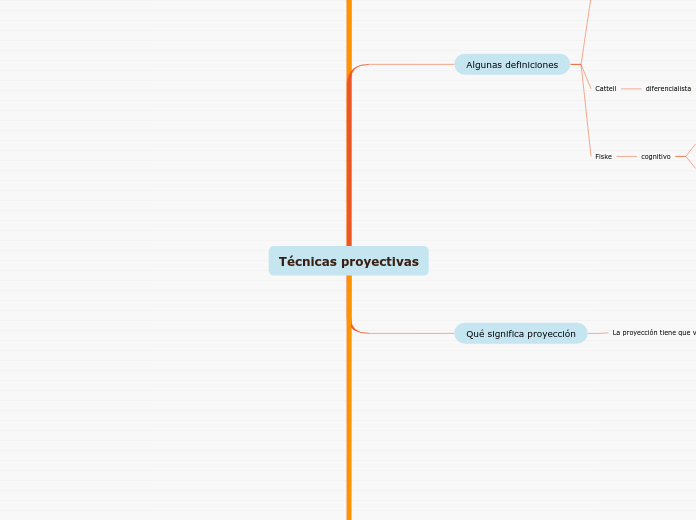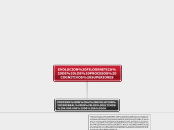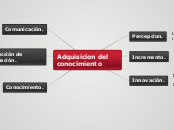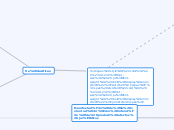Técnicas proyectivas
To name your story, you have to think about the overall message and what you want your audience to understand from the story. Also, make it relevant and easy to remember.
Fuentes de los principios básicos
Teoría del aprendizaje
Antropología cultural
Psiquiatría clínica
Gestalt
Psicodinámico
Algunos fundamentos teóricos
Las técnicas proyectivas se fundamentan en las teorías de la personalidad y surgen por la necesidad clínica y otros ámbitos de conocimiento al sujeto. Existen supuestos básicos comunes desde diferentes modelos.
Las respuestas reflejan la
propia individualidad de la persona que estamos evaluando
Cada sujeto puede dar un número y tipo de respuestas diferentes a otro
El sujeto no es consciente de la relación tan estrecha entre sus respuestas y su mundo
interno.
Cuanto más ambiguos y próximos al sujeto sean los estímulos que se presentan, más son
capaces de reflejar su personalidad.
Toda respuesta ante el material proyectivo no es casualidad sino que es significativa y son signo de la personalidad de ese sujeto
En psicometría mido para poder comparar y predecir, y en las técnicas proyectivas analizó lo peculiar de la persona respecto a las respuestas que da y ese enfoque me permite predecir con base a los elementos estables de la personalidad.
Las técnicas evalúan la personalidad y se manifiesta por un comportamiento pero el
comportamiento es funcional y se refleja de forma integral.
La organización de esa estructura de personalidad hace necesarios diferentes niveles de
profundidad en su análisis.
el sujeto cuenta con una estructura básica y estable de personalidad
Qué significa proyección
The ending of a story is essential. We all know that if the ending is weak, what happened before loses its importance. So make it unpredictable, but fair. A resolved ending answers all the questions and ties up any loose threads from the plot.
La proyección tiene que ver con cómo se utiliza
This is the closure section of the story.
See examples of possible outcomes below:
- all problems have been solved
- it's clear how each one of your characters ends up
- your main character is transformed by the challenge
Murray
Propone que la existencia de una falsa percepción, la interpretación y el significado que le damos al estímulo, por tanto estamos poniendo parte de nosotros mismos.
Anderson
En las técnicas proyectivas están implicados procesos mentales internos, por eso es necesario analizar el contenido y la estructura.
Bell
La técnica proyectiva es un catalizador que provoca la acción de lanzar hacia fuera.
La proyección es la acción que implica la técnica proyectiva: manifestar su mundo interno lanzándolo hacia fuera.
Rappaport
Las técnicas proyectivas, serian el proyector y los cuadros vistos en la pantalla, cada cuadro sería cada respuesta del sujeto.
La proyección es como una película, donde todo el film representa la personalidad del sujeto.
Freud
Try answering these questions to come up with a closure:
- Have all the problems been solved?
- Is there a clear picture of what happens with each character in the story?
- Has the challenge transformed your main character?
- How do the characters feel in the end?
En las técnicas proyectivas se saca fuera, viendo en lo externo lo que tenemos dentro a través de las respuestas que damos a los estímulos que nos presentan.
Es un proceso inconsciente para liberar de la carga que nos provocan algunas emociones o ideas.
Primero ve la proyección como un mecanismo de defensa patológico, pero se da cuenta que todos los sujetos nos proyectamos en el otro.
Algunas definiciones
The middle of the story is where you add layers of complications that will lead to the end. Reveal more about the character's journey. Did their personality go through changes? How did they overcome the challenges? And as you build up the story’s central conflict, make it more personal to that character. Also, from the middle act, you have to lead into the final act.
Fiske
There wouldn't be any tension and excitement in your story if there weren't any obstacles in your character's way.
cognitivo
A story is nothing more than a character overcoming a series of difficulties to reach the desired goal. Obstacles usually create suspense and conflict. In overcoming obstacles, there is growth: weak becomes strong; hatred turns into love; sadness into happiness; wrong into right; lies into truth; or evil becomes good.
See a few examples below:
- stopping a meteor
- finding a killer
- finding love
Es una buena técnica mide variables cognitivas del sujeto.
Sirven como indicadores para el diagnóstico del sujeto en cuanto a la cognición.
Cattell
Your character(s) need(s) motivation in order to solve the challenge(s).
diferencialista
Secondary characters might also have motives that lead them to cross paths with the main character or which might trigger them to help the main character.
También reflejan procesos inconscientes a través del registro más exacto de las respuestas que nos da el sujeto, que guardan relación con esos procesos internos.
El test dinamista es objetivo de percepción errónea a través de los cuales se pretende sondear la dinámica de la personalidad o procesos cognitivos del
sujeto.
Lindzey
Each story has a main character and that character usually needs to solve a problem or challenge. The character's challenge is the one that creates tension throughout the story.
psicodinámico
Type in any other challenges which other characters in the story need to face.
Es estas técnicas todas las respuestas son válidas,
no hay respuestas óptimas.
Son altamente multidimensionales y evocadores de datos inusualmente ricos.
Provocan una amplia variedad de respuestas subjetivas.
Son instrumentos sensibles para rebelar aspectos inconscientes de la conducta.
Tipos de técnicas proyectivas
Juegos y dramatización
Referidas al movimiento
Proyectivas asociativas
Proyectivas constructivas
Expresivas o graficas
Temáticas
Estructurales
Características de las técnicas proyectivas
Hay un interés en la relación de los resultados, es decir en la puntación total.
El tipo de datos que arrojan es complejo e están interconectados.
Trata la peculiaridad de las respuestas.
El sujeto organiza sus respuestas en función de su propio mundo interno.
Métodos globalistas no atomistas.
Lograr penetrar en la personalidad individual.
Recogen información
In the beginning of the story (or the exposition), you will need to introduce the setting and characters. You might also want to introduce the main conflict. This part of the story is important because it gives the reader necessary background information and maybe even a first insight into a character’s personality.
El mundo cognitivo del sujeto
The setting (time & place) of a story can change throughout the plot.
El mundo incosciente del sujeto
Characters are essential to a good story. Usually, the protagonist(s) is/are the most affected by the plot. Introduce a character by focusing on their actions, interests, and occupation, as the physical appearance doesn't make a difference in most cases.










